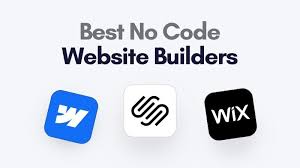
Namecheap vs Hostinger: Which Web Hosting Provider Wins in 2025?
In the crowded world of web hosting, choosing the right provider can make or break your online presence. Whether you’re launching a blog, e-commerce site, or crypto-related project, factors like speed, reliability, and support matter more than ever. In this in-depthNamecheap vs Hostinger comparison for 2025, we’ll break down everything you need to know—from pricing and performance to unique policies like crypto site hosting—to help you decide which is best for your needs.
As someone who’s tested both extensively, I’ll keep this unbiased while highlighting why Hostinger edges out as my top pick for most users. Plus, if you go with Hostinger through my affiliate link, you’ll snag an extra 20% off your first term at no additional cost to you—it’s a win-win.
Quick Overview: Namecheap vs Hostinger at a Glance
Before diving deep, here’s a snapshot of how they stack up:
| Feature | Namecheap | Hostinger |
|---|---|---|
| Starting Price (Annual) | $1.98/mo (Stellar plan) | $2.99/mo (Single plan) |
| Uptime Guarantee | 100% | 99.9% |
| Storage | 20GB SSD (entry) to Unlimited | 50GB NVMe (entry) to 300GB |
| Free Domain | No (but cheap domains) | Yes (on Premium+ plans) |
| Backups | Daily on higher plans | Daily/Weekly on all plans |
| Customer Support | 24/7 Live Chat (mixed reviews) | 24/7 Live Chat (highly rated) |
| Crypto-Friendly? | Often bans crypto-associated accounts | Allows crypto sites (no mining) |
Data based on official plans and 2025 reviews.hostinger.com
What is Namecheap Web Hosting?
Namecheap started as a domain registrar in 2000 and has grown into a full-service host known for budget-friendly domains and no-frills hosting. Their shared hosting plans are ideal for beginners or small sites, emphasizing simplicity and low costs. With a focus on transparency (no hidden fees), Namecheap appeals to users who want to bundle domains and hosting without breaking the bank.
Key strengths: Affordable entry-level plans and a user-friendly cPanel interface. However, it’s not the flashiest option for high-traffic sites.
What is Hostinger Web Hosting?
Hostinger, founded in 2004, has exploded in popularity thanks to its global data centers and AI-powered tools. It’s a go-to for WordPress users, e-commerce stores, and anyone prioritizing speed on a budget. Hostinger’s custom hPanel dashboard replaces traditional cPanel, making it more intuitive for non-techies.
Key strengths: Lightning-fast performance and feature-packed plans that punch above their price weight. It’s especially great for scaling businesses.
Pricing Comparison: Value for Money in 2025
Pricing is where both shine for budget-conscious users, but Hostinger often delivers more bang for your buck long-term.
Namecheap Pricing
- Stellar: $1.98/mo (first year) – 20GB SSD, unlimited bandwidth, free SSL.
- Stellar Plus: $2.98/mo – 30GB SSD, daily backups, priority support.
- Pro: $4.88/mo – Unlimited storage, staging tools.
Renewals jump to $4.48–$8.88/mo, and plans max out at 2 years. No free domain, but domains start at $8.88/year.
Hostinger Pricing
- Single: $2.99/mo (first term) – 50GB NVMe SSD, unlimited bandwidth, weekly backups.
- Premium: $2.99/mo – 100GB storage, free domain, daily backups.
- Business: $3.99/mo – 200GB, object cache, up to 100 websites.
Renewals are $7.99–$10.99/mo, with up to 4-year terms for bigger savings. The free domain and longer commitments make it a steal.
Verdict: Namecheap wins on raw intro pricing, but Hostinger’s inclusions (like free domains and NVMe storage) offer better value. Remember, with my link, that 20% off sweetens the deal even more.
Performance and Uptime: Speed You Can Rely On
Your site’s speed affects SEO, user experience, and conversions—downtime can cost you traffic.
Namecheap Performance
Namecheap guarantees 100% uptime, but real-world tests in 2025 show 99.94–99.99% averages. Load times are solid (around 1.5s globally), thanks to SSD storage, but it lags behind premium hosts during peaks. Fine for low-traffic sites, but not ideal for e-commerce.
Hostinger Performance
Hostinger nails it with 99.99–100% uptime in recent tests and sub-1s load times (0.982s LCP). NVMe SSDs and LiteSpeed servers ensure snappy performance, even for WordPress-heavy sites.
Verdict: Hostinger outperforms Namecheap in speed and reliability, making it better for growing sites.
Key Features: What Do You Get?
Both offer essentials like one-click installs and free SSL, but differences emerge in extras.
- Storage & Bandwidth: Hostinger’s NVMe edges out Namecheap’s SSD for faster reads. Both have unlimited bandwidth.
- Backups & Security: Namecheap provides daily backups on Plus+ plans; Hostinger does it across the board with malware scanning.
- Tools: Hostinger shines with AI website builder, email marketing integration, and CDN. Namecheap sticks to basics like staging.
Verdict: Hostinger packs more modern features for the price.
Customer Support: Help When You Need It
Support can turn a headache into a quick fix—or vice versa.
Namecheap Support
24/7 live chat and tickets are available, with a solid knowledge base. Reviews praise quick resolutions for simple issues but criticize slowness and unhelpfulness for complex ones. No phone support.
Hostinger Support
Live chat is a standout—fast, 24/7, and multilingual, with 87% of users raving about it. Some complaints about escalations, but overall, it’s responsive and proactive.
Verdict: Hostinger’s support feels more reliable and user-friendly.
Crypto Site Hosting: A Key Differentiator
If your site involves cryptocurrency, blockchain, or Web3 projects, policies matter. Namecheap has a reputation for suspending accounts linked to crypto activities, often citing phishing or resource overuse— even for legitimate sites based on vague flags like social media mentions. Users report permanent bans without warning, disrupting businesses.
Hostinger, on the other hand, is more accommodating. They prohibit server-side mining due to resource intensity but welcome crypto-related websites as long as they comply with general terms (no illegal content). Plus, they accept crypto payments via CoinGate, signaling a pro-crypto stance.
Verdict: For crypto enthusiasts, Hostinger is the clear choice—no bans for association alone.
Pros and Cons: Side-by-Side
Namecheap Pros
- Ultra-low intro prices
- Seamless domain integration
- Simple cPanel for beginners
Namecheap Cons
- Weaker uptime in tests
- Mixed support experiences
- Strict crypto policies
Hostinger Pros
- Superior speed and uptime
- Feature-rich plans
- Excellent, fast support
Hostinger Cons
- Slightly higher renewals
- hPanel learning curve (minor)
- No phone support
Who Should Choose Namecheap? Who Should Choose Hostinger?
- Pick Namecheap if: You’re on a tight budget, need cheap domains, and run a simple static site with no crypto ties. It’s great for hobbyists.
- Pick Hostinger if: You want reliable performance, modern tools, and flexibility for growth—or if crypto is in your wheelhouse. It’s ideal for bloggers, small businesses, and e-commerce starters.
My Recommendation: Go with Hostinger in 2025
After weighing the pros, Hostinger stands out as the better all-around choice. Its unbeatable speed, robust features, and crypto-friendly policies make it a smarter long-term investment—especially at that promotional price. Don’t just take my word; thousands of 5-star reviews back it up.
Ready to launch? Sign up for Hostinger today via my link and enjoy 20% off your first term—it’s free for you and helps support this site. Your future self (and your site’s visitors) will thank you.
Final Thoughts
Namecheap vs Hostinger boils down to basics vs brilliance. While Namecheap keeps it cheap and simple, Hostinger delivers the performance and peace of mind to thrive online. Whichever you choose, prioritize your site’s needs—speed for SEO, support for sanity, and policies that fit your niche.
Have questions or your own experiences? Drop a comment below. Happy hosting!
This post contains affiliate links. All opinions are my own, based on hands-on testing and 2025 data.



